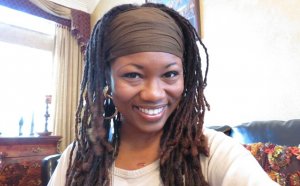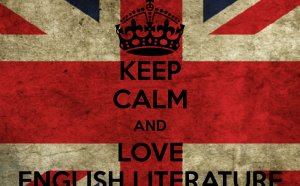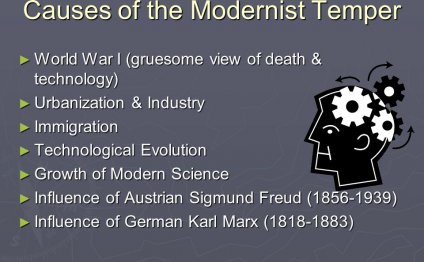
MODERNISM American Literature
1. a response to "sense of social breakdown"
-reaction to WW I
-visual arts, Picasso, schooled as realist, became cubists, surrealism
2. sees world as "fragmented"
-pattern of construction out of fragments
-unrelated pieces
-"these fragments I have shorn against my ruin" -Wasteland
-life is fragmented
-unusual connective patterns missing: morals, framework, gone
3. point of view is remote/detached from subject
-ironic but not unfeeling
4. poetry is very allusive,
-allusions to myth, the Bible, foreign languages, street life, personal
-highly footnoted (see "Love Song of J. Alfred Prufrock" or The Wasteland
5. poems like a riddle, labyrinth
-meaning must be searched for by reader
-like Joyce's Portrait of an Artist or Ulysses
6. Subject: the subject of modernist literature often asks what is the purpose of literature and poetry?
-what is the use for art in a world falling apart?
7. Elite audience: intellectual, academic
-Wallace Stevens is the exception, not elitist like Eliot or Pound
Three Philosophical Backgrounds
(as opposed to historic causes: WW I, the Depression, America/Europe feeling lost)
A. Karl Marx
-economic determinism
-human behavior controlled by forces OUTSIDE self
-class struggle, workers unite for utopian change
B. Sigmund Freud
-psychoanalysis
-psychological determinism
-man behavior from forces INSIDE the self
-interior forces, man's taboos and rules govern self and world
-self-analysis
C. F. Nietzsche
-God is Dead
-economic and psychological determinism
-no divine patterns, search for meaning
-trying to put "world" back into some kind of form, structure
-spiritual ruins after the war, what is the meaning of life???
Modernism in England, America
not period, but movement, a point of view
international, influenced and included all arts
poets writing manifestos
Stevens, Eliot, Williams, Pound
Frost not really a modernist
modern art in painting, various schools:
Dada-ism, meaninglessness
futurism, love of the machine
post-impressionism
cubism
1913, show in NY, the Armory Show
-great affect on American writers of the time
social picture of the period
-rise of cities
-dehumanization, anonymity of people
-class structure changing
-advancing technology
-politics: revolutions, wars, 1905, 1907, 1917
-physics, quantum physics, Einstein, uncertainty principle
-religion, God is dead, everything meaningless
common sense thinking no longer works
anthropology, primitive arts and sciences observed
Freud, Marx, Darwin
Characteristics of Modernism:
1. anti-Romantic, meaning not in nature but in art itself
meaning is subjective, poem need not have a meaning
2. modernist searching for new forms
3. break with the past deliberately
4. poet responsible for life of the spirit
"Sunday Morning",
5. poetry becomes the subject of poetry
the old subjects are the means, the poem is the end
Imagism
Pound, William Carlos Williams
Pound, propagandist for modernism
he influences Williams, Eliot, Frost
Pound manifesto, 1913/1918
1. Direct treatment of the thing, whether subjective or objective
2. To use absolutely no word that does not contribute
3. As regard to rhythm, to compose in sequence of the musical phrase, not in the sequence of a metronome
two other statements:
-poetry, economy and precision of best modern prose
-an "image" is that which presents an intellectual and emotional complex in an instant of time
-the "instant-ness" of modernism very important
-verse (see above):
-demands direct treatment
-economy of words
-and sequence of the musical phrase
James Joyce:
"The artist, like the God of creation, remains within or behind or beyond or above his handiwork, invisible, refined out of existence, indifferent, paring his fingernails."
RELATED VIDEO

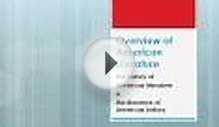
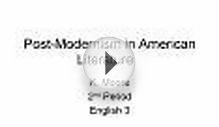
Share this Post
Related posts
Modern African American Literature
The Living Canon Publication Year: 2013 In this volume, Lovalerie King and Shirley Moody-Turner have compiled a collection…
Read MoreNorth American Literature
In 1500 AD, people living in North America spoke many different languages, and none of them were written down. Many of these…
Read More
